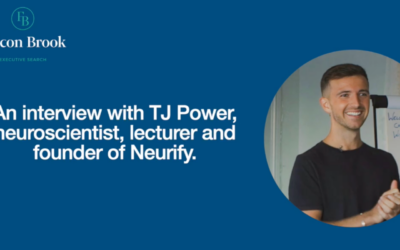by Lee Higgins
This very personal account helps us to understand the challenges faced in the workplace as a result of racial discrimination and a lack of diversity. Here are five thoughts on how to begin to make that change.
We’re listening. We are asking individuals to share their personal stories to enable our network to hear the impact first hand so that we can all gain valuable perspectives on how we can move from making a noise to making a real change.
I have been touched and heartened by the many positive messages that I’ve received from clients, contacts – even competitors – following the publication of our first article on diversity and racism.
We are seeing excellent support for our determination to be a force for good in the markets in which we operate and to provide actionable solutions that can drive change. High net worth sectors such as asset management and commodities have the power to turn the dial on diversity and racism. It is so important that we act now and decisively.
Given that for some years now studies have proved that ‘doing the right thing’ also benefits bottom line returns, what can organisations actually do to increase the diversity of their workforce, and to promote equal access to opportunity for everyone?
We participated in the Diversity Project’s #IAMTALKINGABOUTBLACK webinar to learn more.
We also wanted to get the perspective from a senior black executive and were honoured that Dale Headley was willing to share his story.
We recognise we are in the privileged position of having access to a wide network of individuals in asset management, and we want to use our platform to tell the stories of people in the industry who have encountered racism. If you would like to share your story, please get in touch.
Dale spoke candidly about how he was once told he did not get a job because he was black and how what should have been an enjoyable night out with friends actually ended up costing him friendships because people don’t understand the existential challenges of being a black person.
Dale’s personal experience provides an insight into overt racism in asset management when he was with another organisation many years ago.
Working in Asia prior to joining JP Morgan, he faced blatant racism.
“When we were acquired by another European bank, we went as a senior team to meet with the senior regional team. We all shook hands, we had canapés and drinks.
“Then I was meant to speak to my boss about the timelines for reassignment. For two weeks my boss avoided me. He just did not know how to communicate senior management attitudes. The regional chairman just didn’t want a black man in a senior role. I remember being crestfallen, thinking what actual century is this?”
From our discussions, we’ve highlighted five key takeaways for businesses to consider on their diversity journey.
1. Know your starting point
Dawid Konotey-Ahulu at the Diversity Project webinar said it was important for individuals and organisations to assess their anti-racism starting point: are you/your organisation an A* or a D?
Dale is in agreement. “It’s good that all firms are being forced to take a reckoning of who they are and what it means to be an inclusive organisation in the current world,” he said.
He also recognises that financial institutions among other organisations are trying to put genuine muscle behind their efforts.
“I was involved in the Black Leadership Forum at JP Morgan. This had direct involvement and sponsorship from asset management leadership. The group promotes conversations about people of African descent, seeking to germinate conversations and helping with the diversity of the organisation. Companies like JP Morgan are making budgets available to set up real activity.”
However, in all companies, the diversity rhetoric can be more compelling than the diversity reality.
“Look at how many directors, managing directors, board members are diverse, look at the pay gaps, and be honest about the extent to which these initiatives are actually helping to turn the dial in your organisation.”
2. Protect diverse jobs
Businesses that are making diversity strides must ensure that they do not jeopardise their achievements, for example, when there needs to be a reduction in workforce, as is the case for many organisations right now.
“The impression I get is that while it all looks very good, black jobs are more at risk. So we want to promote black leadership, to recruit young black university and non-university students. But we don’t actually protect these jobs, especially if there is a ‘last in, first out’ policy, I am interested to see where diversity programmes are in a year, will the gains made in the past decade be there?” commented Dale.
Losing a senior black employee has repercussions on the whole organisation because of the vital importance of role models in attracting and retaining a diverse work force.
“My own personal experience as a director after I left and spoke to people was powerful. They asked me, why did you go? You were one of the few visible black faces we had. So businesses have to be more proactive about who they retain during a cyclical downturn. When money is flush, it’s easy to be altruistic and support inclusion and diversity. But when times are hard are you still for inclusion and diversity? That’s a question I think firms have to ask themselves so black and diverse employees don’t become the automatic casualties.”
Dale says this is now a priority because of Covid. “The risk is that Covid will disproportionately affect black people in the City because they take more support roles in the middle and back office. These are often the positions that are cut first as they are not revenue generating.”
3. Don’t just recruit – outreach
Many organisations that struggle to attract diverse candidates already outreach to inner city schools and more can be done to expand this to broaden the entry level funnel.
When Dale participated in such programmes, he was taken aback by the fact that black children growing up in inner London do not think that City careers are open to them.
“They think the City is where white people work. It’s not a part of their reality. I say to these pupils, ‘I’m black and I belong here and so do you.’ Some young people just don’t think they belong in City jobs, even though where I work is only a couple of miles from where they grew up.”
Role modelling has a critical role to play.
“So let’s talk about the black kid in Lewisham who doesn’t think she belongs in the City. The black population in Greater London is between 20 and 25%. Why don’t these people feel like they belong in corporate Britain and in leadership? I think often it’s because there’s no visibility of anyone like them on the boards, on television, they don’t see anything of themselves in these worlds, or very few examples.”
4. Time for a significant shift that goes against the grain
Dale emphasises that achieving equality requires more than gathering and examining data that proves a point.
“Data provides a basis on what you act on, but data doesn’t change anything. The people who have the data have to actually make the change by making decisions. Incremental change rarely changes much. It’s not enough to give a diverse back office employee a 1% increase when the front office is getting a 10% increase. You have to really want to go out and make these changes in the face of people who may question whether it’s fair, if it’s been based on performance.”
To what extent does this come down to the fact that while organisations corporately ‘walk the talk’, with diverse committees and working groups, very often, hiring decisions are still made by a small group of people who skew opportunities towards hiring those who are ‘like’ them, and who therefore feel like a comfortable cultural fit?
A recent FT article entitled “Closing the gap between rhetoric and reality” made a similar case for the need for accountability in a world where only four Fortune 500 CEOs are black.
This recognises that ‘walking the talk’ requires companies to change the basis of much of their decision-making.
Leadership creates culture. If the CEO or chair of a large organisation is racist, the trickle down is that hiring managers and directors will feel constrained and worry about speaking out.
“Repercussions are real. There’s a phrase in the US: you can’t fight City Hall. It comes down to he said, she said – or he said, he said. And despite all of the diversity programmes, nothing changes. From a firm’s perspective, if you’re hiring, if you’re firing, you have to get to the point where there is just an absolute decision to fight the instinct to take a safe choice. Try to not go the easy route when there are two equal candidates.”
5. Recognise your privilege – and use it to drive change
One of the extraordinary things about speaking to Dale was realising that when black people say they live their lives differently because of their colour, it’s because it’s real, irrespective of their education or profession. Black people have to think about things that aren’t on a white person’s radar. His closing anecdote was shocking.
“I was in Asia 20 years ago with friends for the World Cup. We’re drinking and having fun and we’re getting more boisterous and they were starting to make trouble. I had to say, ‘look guys, let’s calm down, because if there’s trouble I’m here with six white guys and I’m thinking I’m the one who is going to end up in jail if there’s trouble tonight.’ So they stopped and we moved on. Some of them have not spoken to me since that trip, because I think they simply couldn’t reconcile that I was different and that I am seen as different.
“These were the days before the phrase “white privilege” became recognised. I have always felt I belonged; I just need all participants in the conversation to recognise this.”



